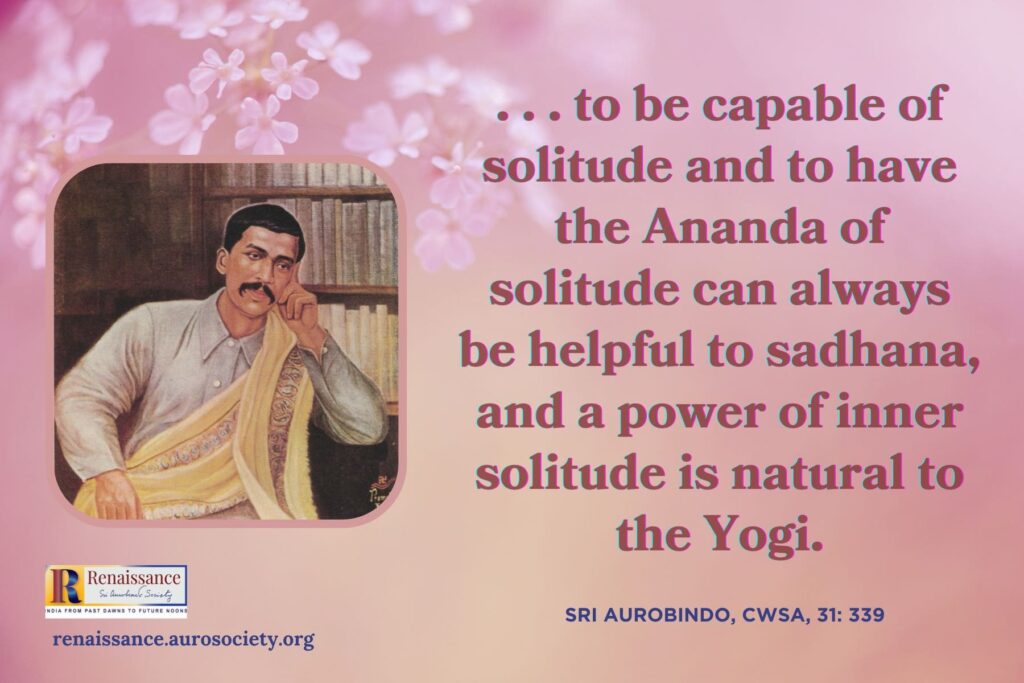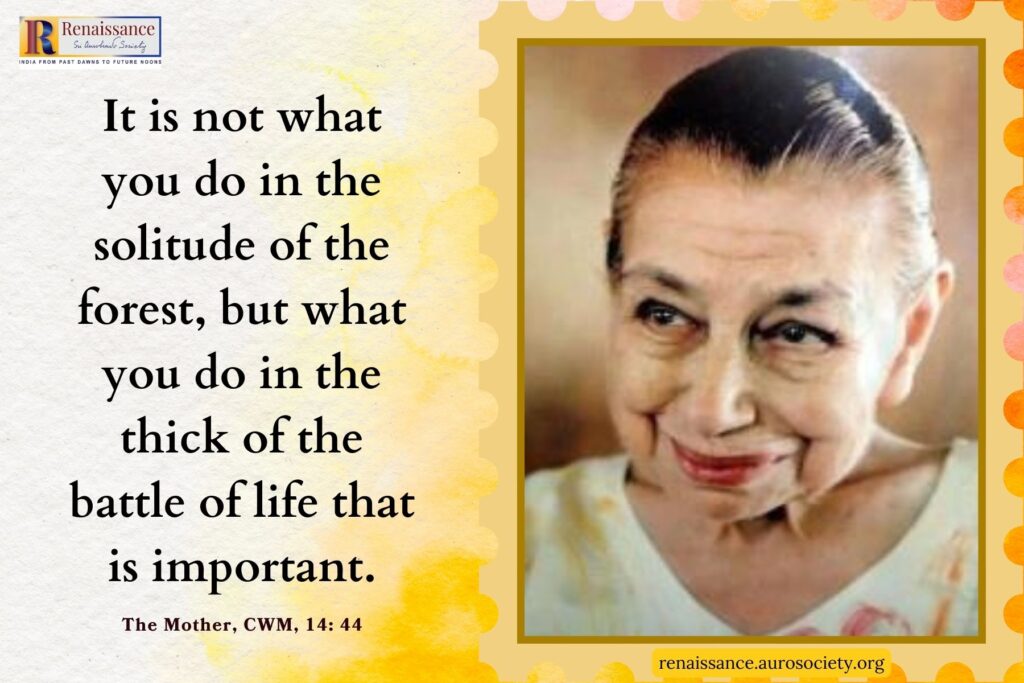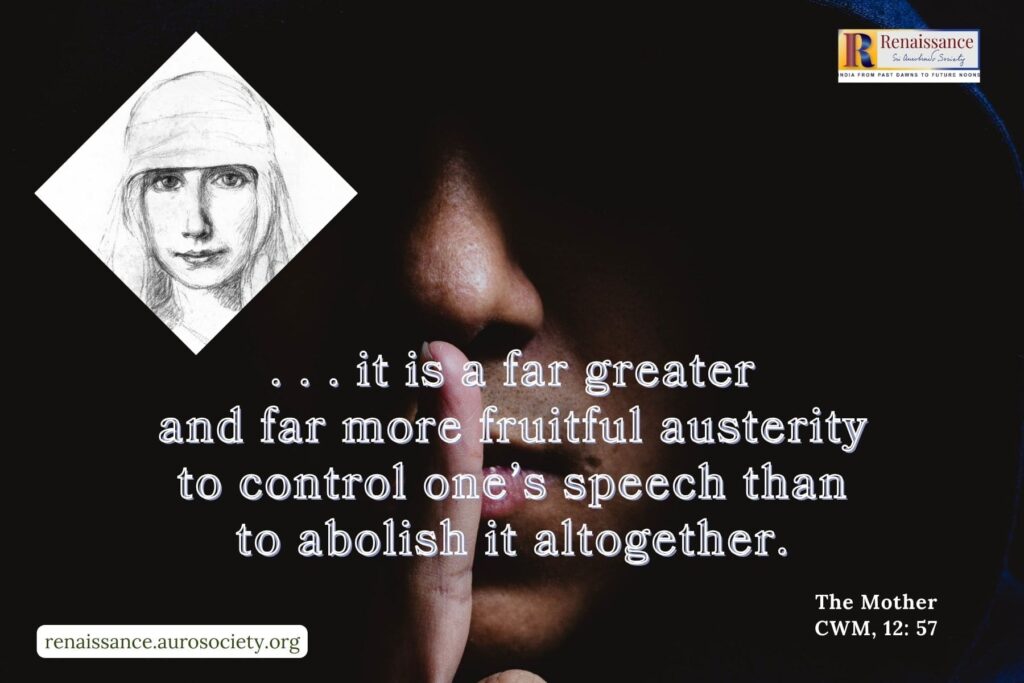Editor’s note: In these passages by the Mother, we learn not only what is concentration but also how to cultivate it. She also emphasises the need to become conscious of the way we receive and spend our energies as well as the role of perseverance.
***
What is concentration?
It is to bring back all the scattered threads of consciousness to a single point, a single idea. Those who can attain perfect attention succeed in everything they undertake; they will always make a rapid progress. And this kind of concentration can be developed exactly like the muscles; one may follow different systems, different methods of training. Today we know that the most pitiful weakling, for example, can with discipline become as strong as anyone else. One should not have a will which flickers out like a candle.
The will, concentration must be cultivated; it is a question of method, of regular exercise. If you will, you can.
But the thought “What’s the use?” must not come in to weaken the will. The idea that one is born with a certain character and can do nothing about it is a stupidity.
~ The Mother, CWM, Vol. 4, p. 5
***
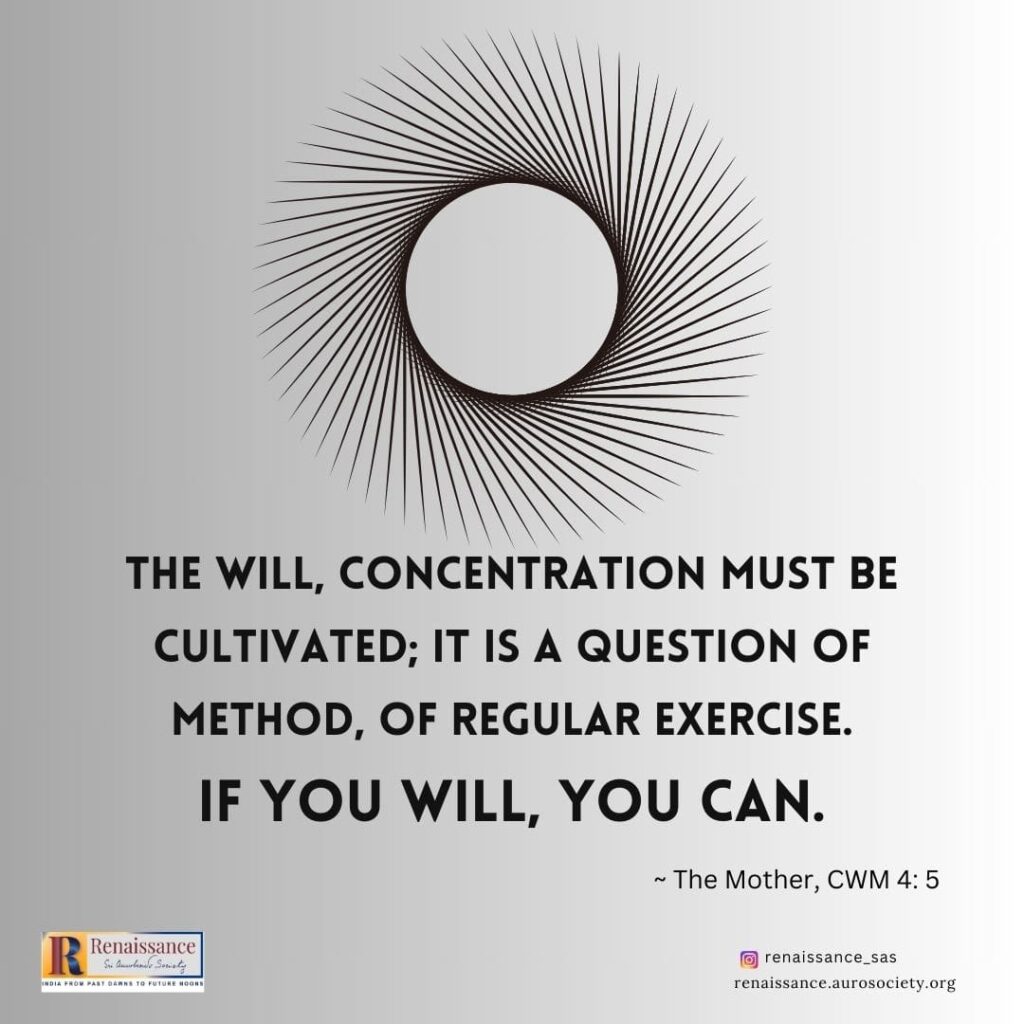
***
Concentration and Interest
It is said that the faculty of concentrated attention is at the source of all successful activity. Indeed the capacity and value of a man can be measured by his capacity of concentrated attention. Generally it comes through interest and a special attraction for a subject.
In order to obtain this concentration, it is generally recommended to reduce one’s activities, to make a choice and confine oneself to this choice alone, so as not to disperse one’s energy and attention. For the normal man, this method is good, sometimes even indispensable. But one can imagine something better.
***
Concentrated Attention
In sporting activities those who want to be successful choose a certain line or subject which appeals more to them and suits their nature; they concentrate on their choice and take great care not to disperse their energies in different directions. As in life a man chooses his career and concentrates all his attention upon it, so the sportsman chooses a special activity and concentrates all his efforts to achieve as much perfection as he can in this line.
This perfection comes usually by a building up of spontaneous reflex which is the result of constant repetition of the same movements. But this spontaneous reflex can be, with advantage, replaced by the faculty of concentrated attention. This faculty of concentration belongs not only to the intellectual but to all activities and is obtained by the conscious control of the energies.
***
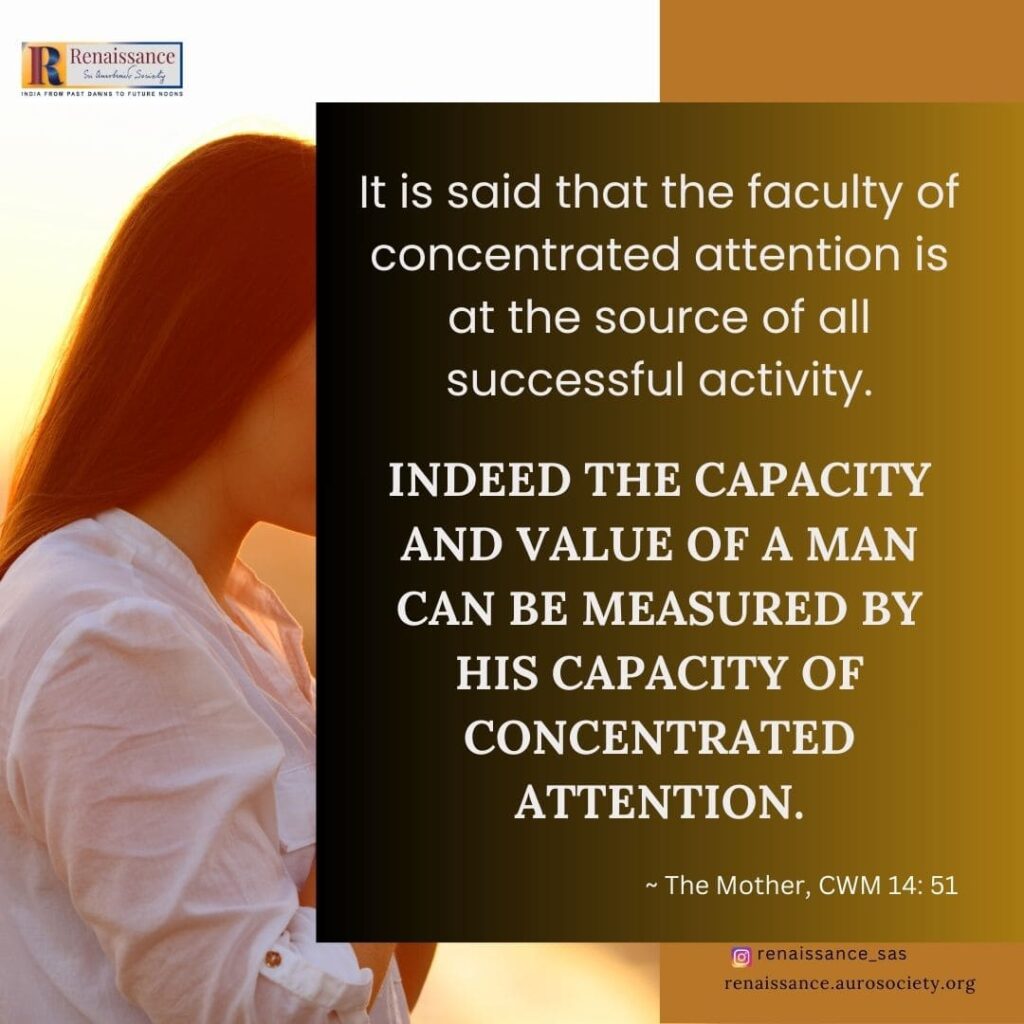
***
It is well known that the value of a man is in proportion to his capacity of concentrated attention, the greater the concentration the more exceptional is the result, to the extent that a perfect and unfailing concentrated attention sets the stamp of genius on what is produced. There can be genius in sports as in any other human activity.
Shall we then advise a limit to one action in order to achieve perfection in concentration?
The advantages of limitation are well known, but it has also its inconvenience, bringing narrowness and incapacity for any other line than the one chosen. This is contrary to the ideal of a perfectly developed and harmonised human being. How to conciliate these two contrary tendencies?
There seems to be only one solution to the problem.
In the same way as an athlete develops methodically his muscles by a scientific and gradual training, the faculty of concentrated attention can be developed scientifically by a methodical training—developed in such a way that concentration is obtained at will and on whatever subject or activity is chosen.
Thus the work of preparation instead of being done in the subconscient by a slow and steady repetition of the same movements, is done consciously by a concentration of will and a gathered attention centred on one point or another according to plan and decision.
***
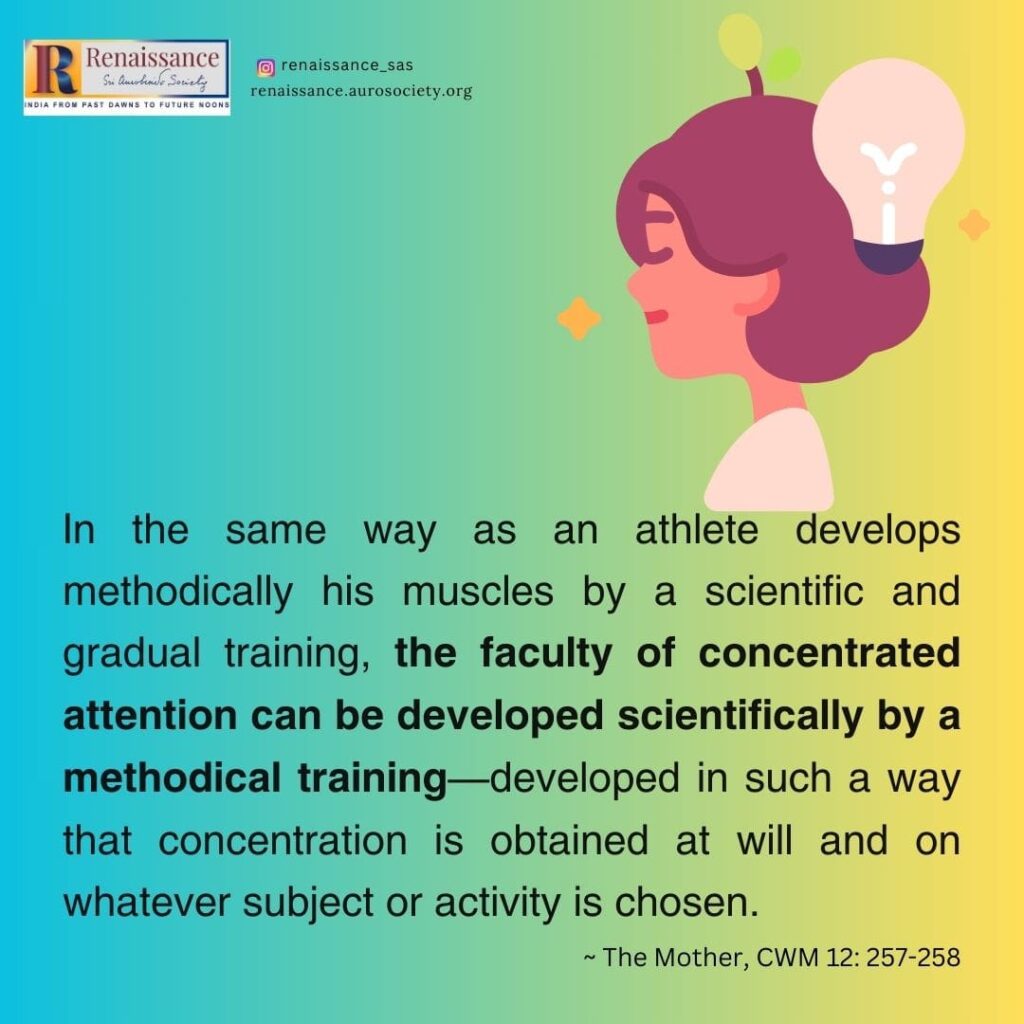
***
The chief difficulty seems to be to obtain this power of concentration independent from all inner and outer circumstances—difficult perhaps but not impossible for him who is determined and persevering. Moreover, whatever method of development is chosen, determination and perseverance are indispensable to obtain success.
The aim in the training is to develop this power of concentrating the attention at will on whatever subject or activity one chooses from the most spiritual to the most material, without losing anything of the fullness of the power,—for instance, in the physical field, transferring the use of the power from one game to another or one activity to another so as to succeed equally in all.
This extreme attention concentrated on a game or a physical activity like lifting, vaulting, punching, running, etc., focusing all energies on any of these movements which bring about in the body the thrill of an exhilarating joy is the thing which carries with it perfection in execution and success. Generally this happens when the sportsman is especially interested in a game or an activity and its happening escapes all control, decision or will.
Yet by a proper training of concentrated attention one can obtain the phenomenon at will, on command, so to say, and the resulting perfection in the execution of any activity follows inevitably.
***
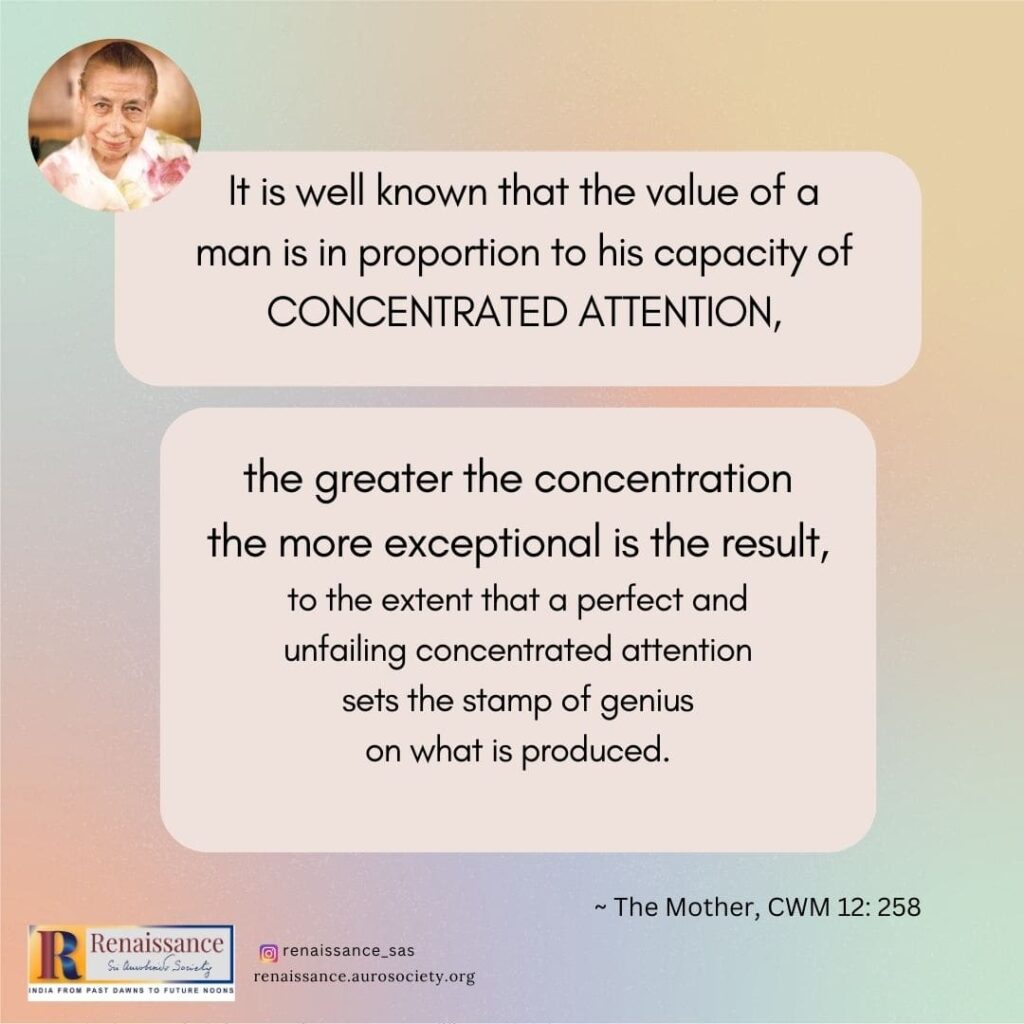
Concentration and Exchange of Energies
To solve a problem, to learn a lesson, a lot of concentration and attention is needed, everyone knows that—an intellectual attention and concentration. But concentration is not only an intellectual thing, it may be found in all the activities of the being, including bodily activities.
The control over the nerves should be such as would allow you a complete concentration on what you are doing and, through the very intensity of your concentration, you acquire an immediate response to external touches. To attain this concentration you need a conscious control of the energies.
Are you conscious of the energies you receive and those you spend?
One is more or less conscious of the energy one spends, especially when one wastes it too much! It is a question here of the constant exchange between receiving and spending! Before the age of reason, little children receive a lot of energy and they spend it lavishly, without thinking, and this allows them to play for hours together without getting tired.
But gradually, as thought develops, one begins to measure and calculate the energy spent—usually this is futile, for unless you have the knowledge of the process of receiving energy, it is better to spend freely what you get than let it stagnate within you.
First, you must become conscious of the receiving of energies, their passing into your being and their expenditure.
Next, you must have a sort of higher instinct which tells you whence the most favourable energies come; then you put yourself in contact with them through thought, through stillness or any other process—there are many. You must know what energy you want, whence it comes, of what it is composed.
Later comes the control of the energy received.
***
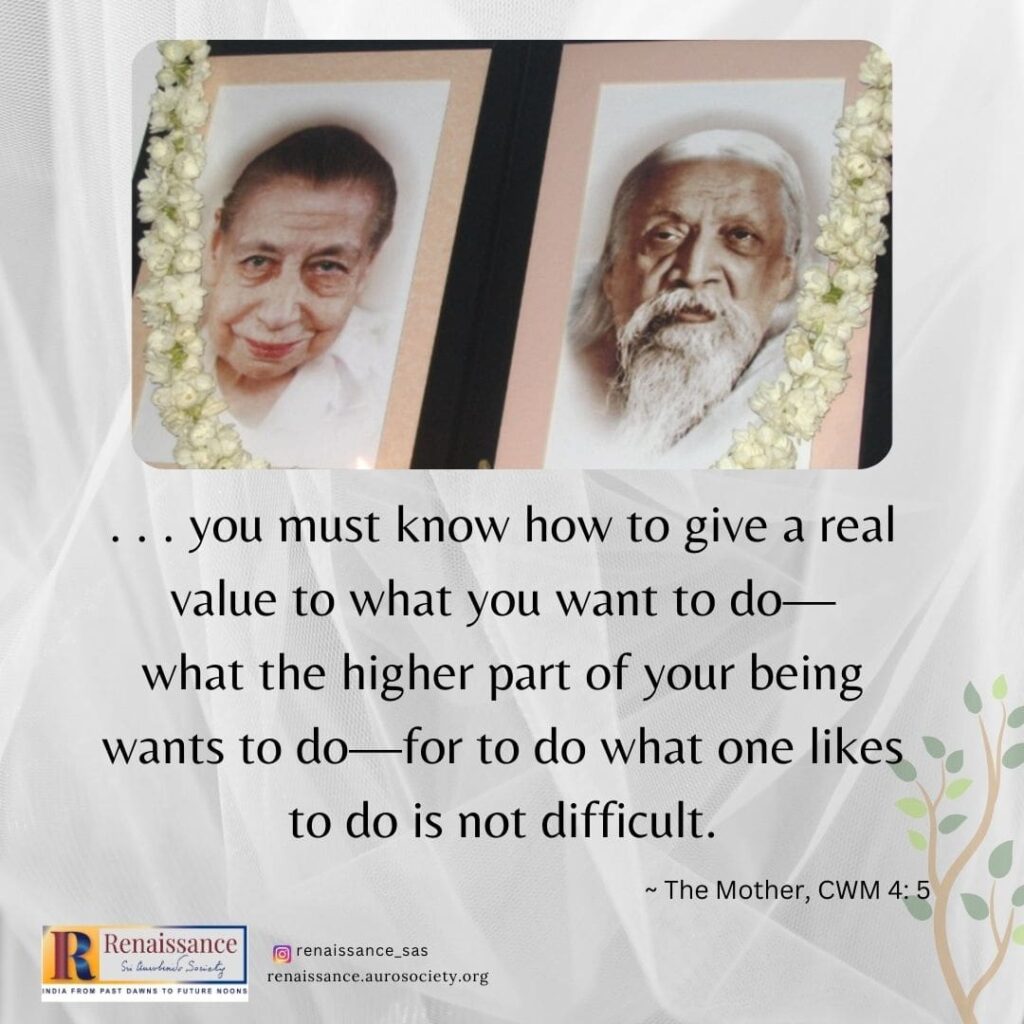
Ninety per cent of men do not absorb enough energy or they take in too much and do not assimilate what they take—as soon as they have had a sufficient dose they immediately throw it out by becoming restless, talking, shouting, You must know how to keep within you the received energy and concentrate it fully on the desired activity and not on anything else. If you can do this, you won’t need to use your will. You need only gather together all the energies received and use them consciously, concentrate with the maximum attention in order to do everything you want.
And you must know how to give a real value to what you want to do—what the higher part of your being wants to do—for to do what one likes to do is not difficult.
From our archives:
Power of Concentration for Enhancing Productivity
~ Design: Beloo Mehra

